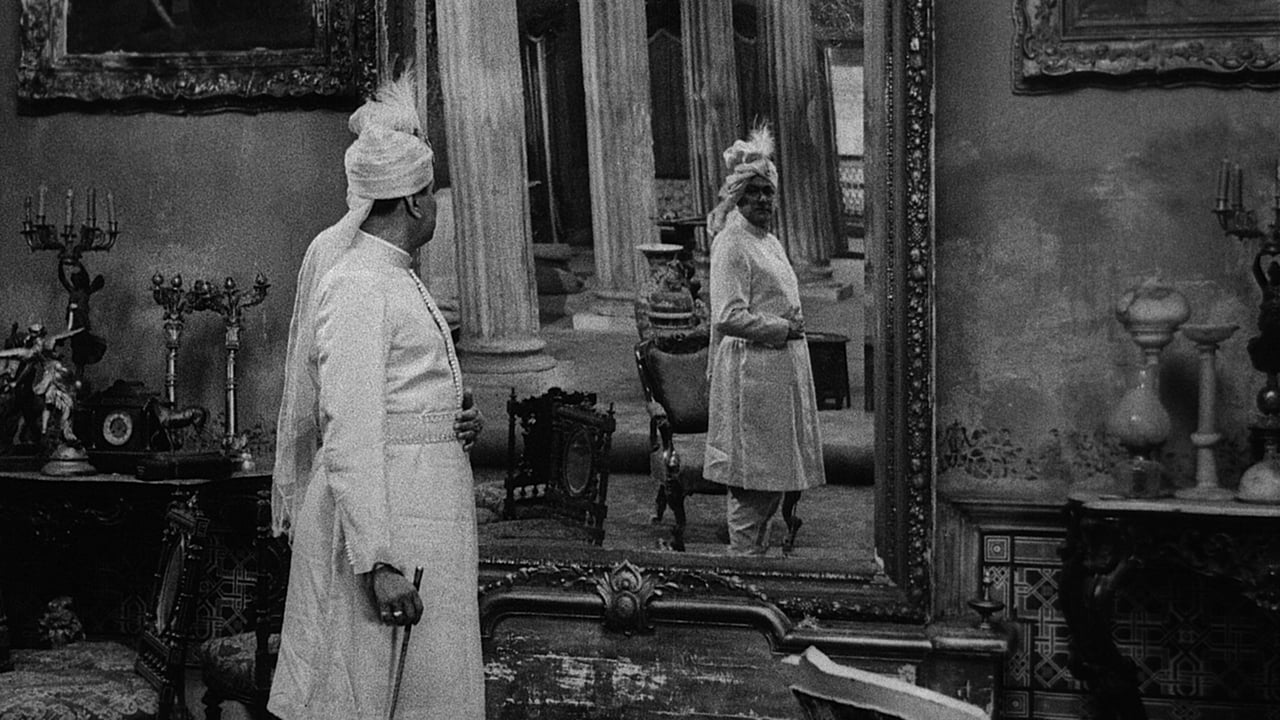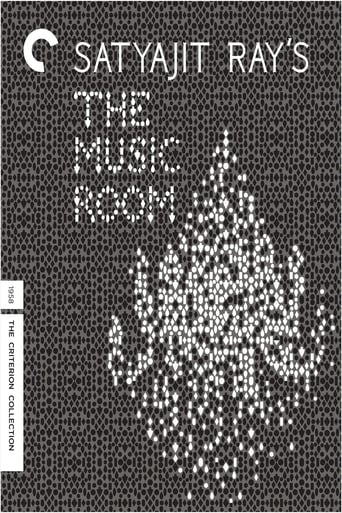



The movie's neither hopeful in contrived ways, nor hopeless in different contrived ways. Somehow it manages to be wonderful
View MoreThis is a gorgeous movie made by a gorgeous spirit.
View MoreIt's a movie as timely as it is provocative and amazingly, for much of its running time, it is weirdly funny.
View MoreThere is definitely an excellent idea hidden in the background of the film. Unfortunately, it's difficult to find it.
View MoreGlorious filmmaking, a spellbinding morality tale of pride. Elegant cinematography, a perfect location and an elaborate set, and three amazing musical performances, each more electrifying than the last. I could watch that final dance over and over again. And of course, there's Chhabi Biswas dominating in the lead (although the other actors are excellent as well), portraying a man caught between his pride and the changing times, and suffering the consequences. The film isn't perfect -- for one thing, I'd like to see more time devoted to Khoka to help establish the emotional connection, not to mention Roy's wife -- but it is quite magnificent and captivating.
View MoreBesides of all of the well known, familiar, typical Bollywood type of movies, India was also capable of delivering some genuinely good, little movies.What makes this movie a good one is that it's being a rather simplistic and little drama, that actually works out more effective because of that. It focuses mainly one main character, that is slowly starting to realize he is loosing everything because of the changing times. It's a movie that works on a dramatic level with its main character and makes all of his emotions and feeling come across very realistic and almost sensible.Of course the movie is not as stylized and perfectly put together as a big Hollywood movie from around the same time period but nevertheless "Jalsaghar" still is one fine put together movie, by director Satyajit Ray. You can really tell he is a director that progressed over the years, as he gained more and more experience, recognition and money to work with.Really visually this movie is being great. I really liked the black & white cinematography by Subrata Mitra, who started out his movie career along with Satyajit Ray. It's a movie with an heavy Indian atmosphere over it, so the lovers of its culture will definitely be able to appreciate this movie, all the more.Simply one fine, effective little drama.8/10http://bobafett1138.blogspot.com/
View MoreJust to appreciate Roshan Kumari's legendary performance -one of the most mesmerizing dancing sequences ever filmed, this masterpiece deserves a repeated viewing. There is something savage, auto-destructive but also the purest in form about the landlord's passion for music and childish vanity in front of his peers, which made me ponder over the place of music in our society long after the credits end. In the age of MTV and MP3, we are used to the idea of carrying routinely our favorite songs everywhere from streets to bathroom, and it's pity that we hardly experience anymore the authentic ambiance of intimate music gathering such as miraculously acted and filmed in Jalsaghar. Music in other era and other place must have been high point and extra-ordinary moment of community life, source of the spiritual inspiration for civil life as well as its destruction. The decor and lighting of the music room is sumptuous and otherworldly, in perfect contrast with the wearisome monotony of domestic scenes the declining aristocrat is forced to endure.
View MoreSome of the Bollywood movies are excellent, but others are of little interest to anyone but India natives or language speakers.This subtitled film (ESPECIALLY this one) is not one I would have wanted to see, and didn't deserve the 8.2 rating is had on May 12, 2007, but maybe it does to someone from India.The the film is grainy and the topic is "corny" to me (a 'murrican).I suggest that the ratings of Bollywood films be taken with a "grain of salt" until you have viewed several of them.I would like to see ratings marked "subtitled version" or "original language version".
View More